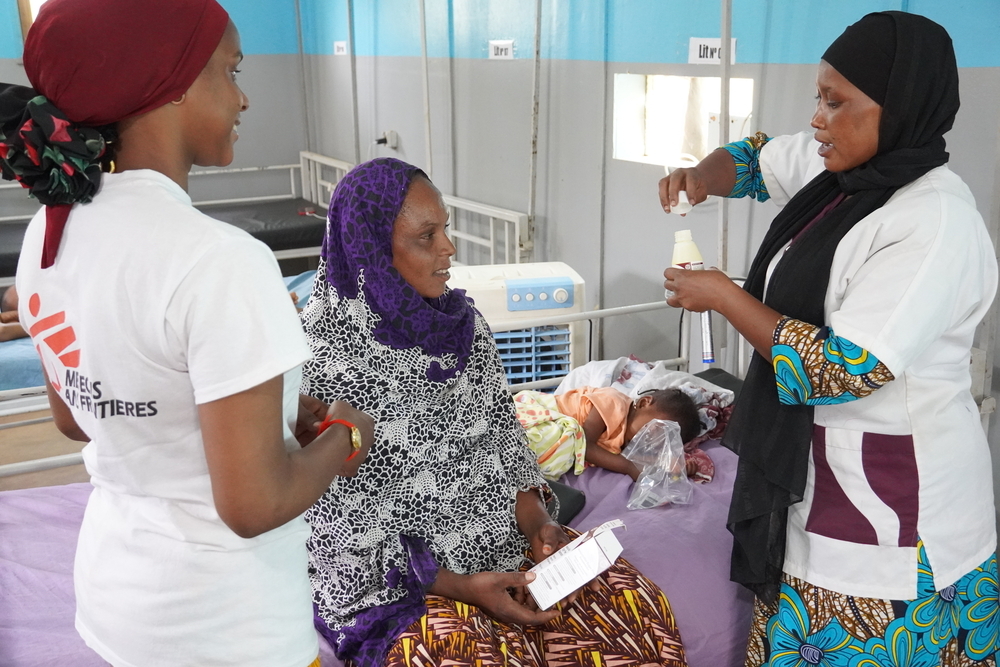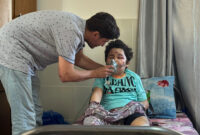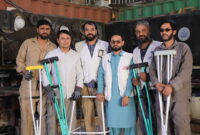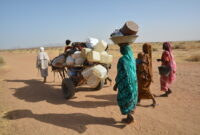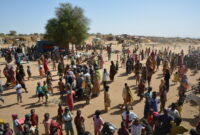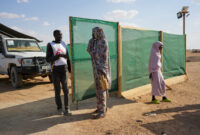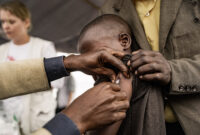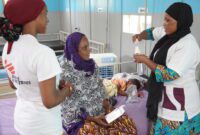Mali: Violence escalates, access to healthcare decreases
Doctors Without Borders/Médecins Sans Frontières (MSF) is concerned about the intensification of violence in central and northern Mali. Rivalry between the various parties to the conflict is restricting people’s access to healthcare. During the week of 27 November 2023, MSF had to evacuate its teams from Nampala to the town of Niono, in the Ségou region, because the organisation was no longer able to ensure their safety. Members of the local community, both patients and colleagues, informed us of deaths and wounded in the villages and hamlets of Toulé and Toladji. MSF was the last medical organisation still operational in Nampala town.
The Malian army, with supported from its Russian partners, is fighting non-state armed groups in central and northern Mali. “In recent weeks, we have had to evacuate some of our teams and partially put on hold certain medical activities in the Ségou and Timbuktu regions. We are often the last humanitarian organisation to work in sensitive areas. When MSF decides to leave, it’s because the situation has become very critical. We are concerned for people who are not taking part in the conflict, but who are nevertheless exposed to the violence and whose access to healthcare is compromised. When we started operations in Toulé and Toladji, some people told us that they hadn’t seen a doctor for seven years,” explains Aissami Abdou, operations coordinator.
In recent months, other episodes of violence have also had the effect of restricting people’s access to healthcare.
From August to December 2023, the Jama’at Nusrat al-Islam wal-Muslimin, JNIM, a non-state armed group, prevented goods and basic necessities from entering Timbuktu. The city and its surrounding areas were almost inaccessible by land and river. As a result of various attacks and threats, the authorities issued a curfew, and the cost of living rose while food and fuel rations were cut.
“This town’s isolation also had an impact on some of MSF’s activities,” explains Jean Jacques Nfon Dibie, MSF project manager in Timbuktu. “Because of the difficulty of access and lack of security, MSF has had to limit activities and movements, evacuate some staff, and contend with the problems of medicine supply, logistical equipment, and fuel. Some medical supervisions have been temporarily suspended. This has had an impact on our activities.”
In Niafounké, also in the Timbuktu region, MSF and Ministry of Health teams treated 29 wounded, including two women, in the hospital’s emergency department following an attack on a military camp on Friday, 24 November. To treat the wounded, MSF helped to triage the injured according to the seriousness of their condition and provided medical drugs and material.
In September, an MSF vehicle transporting a medical referral from Hombori to Douentza was shot at in Mopti. The vehicle was carrying a pregnant woman who, due to complications, had been referred to Douentza hospital. The pregnant woman was accompanied by her mother, who was killed, while she and two other passengers were injured.
Fatal accidents involving explosive devices are also becoming increasingly frequent. On the night of Saturday 22 to Sunday 23 October, three fairground vehicles returning from the market were blown up by explosive devices at three different locations on the Gossi – Hombori road in central Mali. Eight people were killed instantly and around forty injured, including 11 with serious injuries, all of whom were admitted to the Hombori community health centre where MSF teams work.
The general security situation in the centre and north of the country is worrying. The violence is impacting the population, who find themselves trapped, as well as MSF. “We remind all parties to the conflict that our staff, our ambulances and our health structures must be respected and spared.
Our mission is carried out in compliance with medical ethics, which impose in particular the duty to provide care without harm and to assist any person in danger, with humanity, impartiality and respect for medical confidentiality. Our medical activities must be preserved. Children, pregnant women and the injured must be treated,” concludes Abdou.
